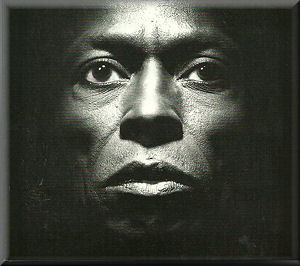CD1
1. Tutu
2. Tomaas
3. Portia
4. Splatch
5. Backyard Ritual
6. Perfect Way
7. Don't Lose Your Mind
8. Full Nelson
CD2
1. Opening Medley: Theme from Jack Johnson/Speak/That's What Happened
2. New Blues
3. Maze
4. Human Nature
5. Portia
6. Splatch
7. Time after Time
8. Carnival
CD1
Miles Davis - Trumpet
Marcus Miller - Bass guitars, guitar, synthesizer, synthesizer programming,
bass clarinet, soprano sax, other instruments
Jason Miles - Synthesizer programming
Paulinho da Costa - Percussion (tracks 1, 3-5)
Adam Holzman - Percussion, synthesizer, synthesizer programming
Steve Reid - Percussion (track 4)
George Duke - All instruments except percussion, bass guitar, and trumpet
(track 5)
Omar Hakim - Drums, percussion (track 2)
Bernard Wright - Synthesizers (tracks 2, 7)
Michal Urbaniak - Electric violin (track 7)
CD2
Miles Davis - Trumpet, synthesizer
Bob Berg - Sax
Robben Ford - Guitar
Robert Irving III - Synthesizer
Adam Holzman - Synthesizer
Felton Crews - Eletric bass
Vincent Wiburn Jr. - Drums
Steve Thornton - Percussion
I have already reviewed on compilations several of the tracks from Tutu, Miles Davis's 1986 album, here reissued and remastered along with another CD of previously unreleased material recorded at the 1986 Nice Festival. Tutu was Miles's first album after he moved from the Columbia record label to Warner Brothers. I say it was Miles's album, but much of it featured Marcus Miller, who played most of the instruments and arranged most of the tracks, six of which were his own compositions.
My previous opinion of the title-track is that Davis's contribution was "decorative rather than innovative". Marcus Miller laid down a thick basis of funky grooves, over which Miles's trumpet floated in fragments. This is actually the process for the whole album, with the trumpeter's contributions virtually overwhelmed by Miller's electronic backgrounds. The arrangements are certainly powerful but their funk-rock mode already seemed outmoded by 1986.
The second CD is closer to jazz, because Miles led an octet containing some jazzmen. Yet there were still three people (including Miles himself) listed as playing synthesizers. The opening track is definitely jazz-rock: a 15-minute medley full of powerhouse beats and rocky riffs. Bob Berg and Robben Ford play good solos.
Miles Davis is featured on his own composition, New Blues, mainly playing short phrases rather than melodic sequences. Robben Ford adds an appropriately bluesy guitar solo, drawing on his early experiences with such blues artists as Charlie Musselwhite and Jimmy Witherspoon.
The jazz-fusion style reappears with Maze, where Robben Ford's guitar heroics are outstanding. Miles veers towards pop music with Human Nature, his version of the Michael Jackson hit from the Thriller album. After stating the melody (with a wrong note here and there), Miles doodles on top of the rich backing. The next two tracks - Portia and Splatch - come from the Tutu album, followed by another pop song - Cyndi Lauper's Time after Time, another case of Davis taking a tuneful melody and embellishing it. You may notice that it is very like Human Nature in that it basically swings between two chords.
This live CD ends with Carnival, which is manily a showcase
for the busy percussion. It is interesting to have this live set which
has not been released before, but it doesn't add much that is new
to the Miles Davis canon.
Tony Augarde
www.augardebooks.co.uk
